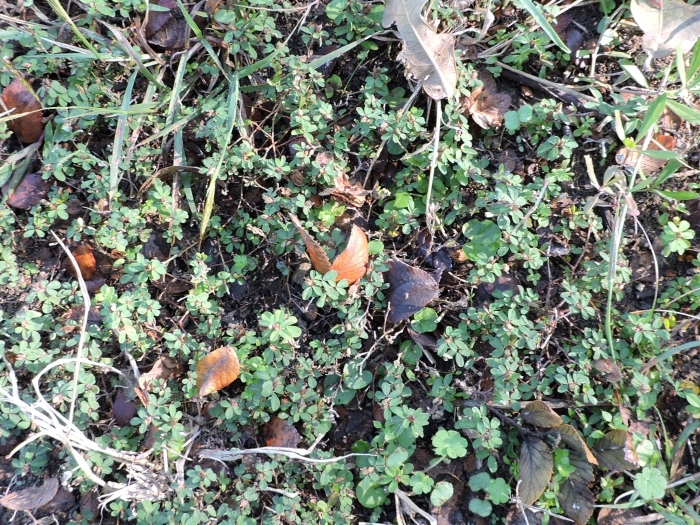Japanese Clover
(Kummerowia striata)
Japanese Clover (Kummerowia striata)
/
/

Sam Kieschnick
CC BY 4.0
Image By:
Sam Kieschnick
Recorded By:
Copyright:
CC BY 4.0
Copyright Notice:
Photo by: Sam Kieschnick | License Type: CC BY 4.0 | License URL: http://creativecommons.org/licenses/by/4.0/ | Rights Holder: Sam Kieschnick | Publisher: iNaturalist | Date Created: 2016-10-27T22:06:01-07:00 |
























Estimated Native Range
Summary
Kummerowia striata, commonly known as Japanese clover, is an annual herb that is native to grasslands and open areas in East Asia, and has been introduced to the eastern United States. It typically grows up to 16 inches (40 cm) tall and features trifoliate leaves with oval leaflets. The plant produces small, pea-like flowers in shades of pink, purple, and white during the summer months, which are modest in appearance but can add a subtle charm to the landscape. The flowers are followed by small, coiled seed pods.
Japanese clover is valued for its ability to fix nitrogen in the soil, making it beneficial for improving soil fertility. It has been used historically for revegetating pastures and preventing erosion, particularly in sandy soils where it thrives. In cultivation, it requires minimal care, tolerating poor soils and drought conditions once established. It is often used in wildflower mixes for meadows, as a cover crop in agricultural settings, and for erosion control on slopes and disturbed sites. However, gardeners should be cautious as Kummerowia striata can become potentially invasive outside its native range, outcompeting native vegetation and altering ecosystems. It is recommended to check local regulations before planting.
Kummerowia striata prefers full sun to partial shade and can tolerate a range of soil types, though it performs best in well-drained sandy soils. It is generally free from major pests and diseases but can spread aggressively if conditions are favorable.CC BY-SA 4.0
Japanese clover is valued for its ability to fix nitrogen in the soil, making it beneficial for improving soil fertility. It has been used historically for revegetating pastures and preventing erosion, particularly in sandy soils where it thrives. In cultivation, it requires minimal care, tolerating poor soils and drought conditions once established. It is often used in wildflower mixes for meadows, as a cover crop in agricultural settings, and for erosion control on slopes and disturbed sites. However, gardeners should be cautious as Kummerowia striata can become potentially invasive outside its native range, outcompeting native vegetation and altering ecosystems. It is recommended to check local regulations before planting.
Kummerowia striata prefers full sun to partial shade and can tolerate a range of soil types, though it performs best in well-drained sandy soils. It is generally free from major pests and diseases but can spread aggressively if conditions are favorable.CC BY-SA 4.0
Plant Description
- Plant Type: Herb
- Height: 0.5-1 feet
- Width: 0.5-1 feet
- Growth Rate: Moderate, Rapid
- Flower Color: Pink, Purple
- Flowering Season: Spring, Summer
- Leaf Retention:
Growth Requirements
- Sun: Full Sun, Part Shade
- Water: Low
- Drainage: Fast, Medium, Slow
Common Uses
Erosion Control, Low Maintenance
Natural Habitat
Native to grasslands and open areas in East Asia
Other Names
Common Names: Japanese Clover, Common Lespedeza, Japanese Bush-Clover, Japanese Lespedeza, Striate Lespedeza
Scientific Names: , Kummerowia striata, Desmodium striatum, Hedysarum striatum, Hedysarum striatum, Kummerovia striata, Kummerowia striata var. kobe, Lespedeza striata, Lespedeza striata var. kobe, Meibomia striata
GBIF Accepted Name: